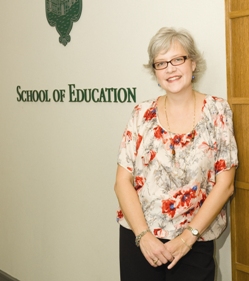In Demand
Job Opportunities for Special Education Teachers
By Lisa L. Ownby, MSW
Published in Teachers of Color magazine Fall 2012
 I N D E M A N D across the country, every state faces special educator shortages. This career is in high demand!
I N D E M A N D across the country, every state faces special educator shortages. This career is in high demand!
Nationally, the special educator salary range is $34,000 - $84,000 (U.S. Department of Labor, Bureau of Labor Statics). Not only does this career offer flexibility and a good salary, it also provides opportunities for committed and talented educators to profoundly impact the lives of students with disabilities and their families.
Men and individuals from culturally and linguistically diverse groups are in particular demand in special education. Changing demographics now require teachers to be prepared to work with students and families who are culturally and linguistically diverse. The demographics are expected to continue to change, with schools serving increasing numbers of diverse students over the next several decades. The diversity of special educators needs to reflect the diversity of their students.
"Every child living in America deserves to be taught by a highly effective teacher. In addition, to being highly effective, teachers who reflect the diversity of their students have an added benefit in that they frequently understand the cultural experiences of those they teach. That understanding can lead to higher expectations for students, increased graduation rates, and greater college opportunities."
The needs of students with disabilities vary greatly. Students may have learning, academic, cognitive, physical, emotional, behavioral, health care, or multiple needs. Special educators work collaboratively with general educators, related service providers and families to ensure that students receive an appropriate education.
Special educators are skilled in: teaching students with a range of disabilities; implementing federal education law (IDEA); designing individualized education programs; using evidence-based instructional practices; advancing student rights; transitioning students from school to work; and team building.
A state teaching license is required to be a special educator. Websites like gradschool.com and peterson.com are helpful sites to look for teacher preparation programs. Some programs also offer pathways to English Language Learners (ELL) endorsements.
Applicants to teacher preparation programs should consider those that recognize the importance of addressing cultural and linguistic diversity both in the field and in the preparation program. Programs should expose students to campus wide diversity initiatives, provide attention and sensitivity to cultural and linguistic diversity, and ensure that a focus on diversity is woven throughout coursework, assignments, and class projects. Candidates should have student teaching opportunities and clinical experiences in a variety of settings, both rural and urban, to allow them to master culturally responsive instructional strategies before being assigned to their own classrooms.
Special education is a challenging and rewarding career that makes a difference in the lives of students with disabilities!